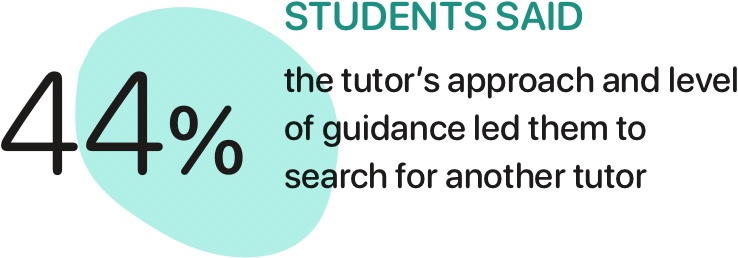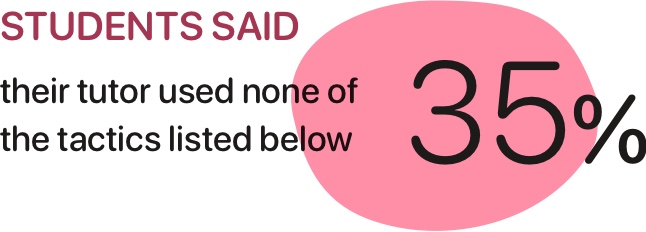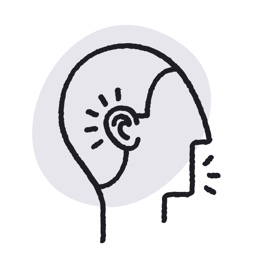5 Tips for First Session Success
Confidently engaging with students and encouraging them to book future sessions is a critical component of continuing to grow your tutoring practice.
Students come to Wyzant in search of expert guidance.
Some only require one session – theirs is a short-term goal that needs specific help to solve a particular problem. The vast majority of students have sought out 1:1 tutoring because they are reaching for help beyond equations, technical competency, or subject content comprehension. They want support on how to overcome their own challenges best and achieve success in their learning goals.
At Wyzant, we see hundreds of new tutoring connections every day. As a result, we know that the first session with a new student is a critical point. Often, we see highly competent tutors lose out on new business based solely on how they handle that moment.
As tutors, you’re evaluating fit, ability, and interest in helping a student.
As students, they’re evaluating your expertise, approach, and ability to help them reach their goals.
Confidently engaging with students and encouraging them to book future sessions is a critical component of continuing to grow your tutoring practice. We surveyed students about some proven tactics sourced from tutors that we believe can help you grow your business. The students we chose all decided to change tutors after their first session. 44% of respondents reported that the tutor’s approach and level of guidance during the first session led them to search for another tutor.

In digging deeper, it wasn’t the approach, but that tutors appeared to have no evident approach at all. Over 35% of respondents reported that their tutor used none of the tactics listed below.

The data suggests that the more tips you add to your practice, the more successful you’ll be at retaining new students.

1. Communicate your process for student assessment
Unless your prospective student is looking for quick help on a specific problem, chances are good that you’re conducting a student assessment, whether you realize it or not. Many tutors we spoke with use the first session as an assessment and a meet-n-greet. Some tutors charge for this time; others conduct the assessment asynchronously and allot a portion of the first session to a meet-n-greet. Regardless of your approach, being intentional in communicating it to students is crucial. Think of it as a signal of your preparedness.
Here is an example of how other tutors conduct an assessment:
1) Adjust each evaluation to the specific student’s needs and your mutual availability.
2) Conduct it in advance over the phone, via messaging, as a free first session, or as an introductory discussion before getting started. You can also use the Online Demo feature in messaging to schedule a meet and greet in the Wyzant tool.

3) Assessments will vary by age and subject, but often include some combination of the following:
- Conversation with or reviewing a report from a parent or teacher
- Reviewing past and current assignments
- Sharing syllabus, textbook, or discussion posts
- Learning your student’s interests as a way to connect outside of the material

2. Connect and invite students to ask questions
How you build a rapport with a student is best determined by you. We continually hear that students appreciate when tutors take the time to get to know their interests and personality. Doing so will help you tailor your approach and materials in a way that’s more likely to resonate with the student and result in a long-term tutoring relationship.
For many students, incorporating interests into the session material may be the key to unlocking a love (or at least get over a hatred) for a particular subject.
Most importantly, inviting students and parents to ask you questions is critical, especially in the first session. Our student survey showed unanimously that their initial tutor failed to invite them to ask clarifying questions about their tutoring process.
However, 80% of the tutors they worked with next encouraged those questions.

3. Collaboratively identify the goal and set measurable objectives
Tutors recommend asking both, “What are you struggling with?” and, “What do you want from the tutoring experience?”
We’re often surprised by how much the answers can differ between similar questions! Often, the goal of tutoring goes beyond an improved grade. As you know, the benefits of tutoring are vast; improved confidence, de-escalation of behavioral problems at home or in the classroom, and mentorship are just a few of those added benefits. Pinpointing a student’s ultimate goals can be difficult in their moment of need. However, doing so can help both parties determine if there is a good match for ongoing work and then build their tutoring plan.
Once you’re both clear on the goal, determine a way to measure progress. All tutors personalize their sessions and know this will look different for everyone. But helping your student identify their unique success metrics helps them work toward them, even when they are not in a session with you.

4. Schedule your next (and recurring) sessions
At the end of the session, save five minutes for arguably the most straightforward item on this list – comparing calendars and agreeing on the next appointment.
Some tutors say that they don’t do this for fear of being presumptive or pushy. Still, our student survey suggests that scheduling the next session, or a recurring timeslot, is another easy way for tutors to demonstrate enthusiasm and guidance throughout the process.
Flexibility is essential, but a laissez-faire approach leaves many students searching for a little more structure in the relationship.

5. Show your work!
This old academic adage applies to tutors too. For all of the previous steps above, summarize the learnings in writing and share with the student post-session. Important points to highlight:
- A reminder that you’re there for questions or clarifications
- A summary of goals and tutoring objectives
- A weekly plan toward achieving those goals and objectives, both during and between sessions
- Study materials, external resources, next steps in completing their work, or small homework assignments to extend the session
- Following session details and confirmation
At Wyzant, our goal is to serve the individual learner, and the way we do that best is by letting you focus on the tutoring. We’re here to support you and share broader trends from the marketplace so that we can Achieve More Together.
